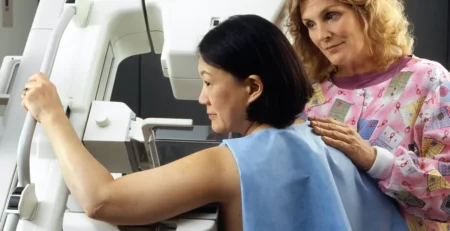Breast Cancer Awareness Month: Early detection can save lives, know importance of recognising symptoms
New Delhi: Breast cancer is one most common cancers in the world that is usually detected after symptoms appear. A study conducted by AIIMS shows India saw a sudden jump of 35.9 per cent in breast cancer cases in the last seven years. This is a concerning number, which needs urgent attention and here comes the role of practising awareness for early detection.
Dr Swati Suradkar– Consultant Breast Surgeon at Ruby Hall Clinic, Pune told News9, “Breast cancer is a significant health concern, especially in developing nations like India, where it constitutes nearly a quarter of all female cancers in urban areas. While traditionally associated with women over 40, there’s a rising trend of diagnoses in younger individuals. Detecting it early greatly increases the chances of a complete cure, with screening mammography playing a crucial role. All women need to be aware of potential signs and symptoms.”
“A key indicator is the possibility of a breast lump. Though not all lumps are cancerous, any newly discovered, painless lump should be thoroughly examined. Cancerous lumps often have irregular shapes and are immobile, and firm. However, they can also be rounded and cause discomfort. Unfortunately, painless lumps might lead to delayed medical attention until they grow significantly or exhibit concerning features like nipple discharge, swelling, ulcers, or bleeding. Consulting a specialist promptly upon noticing a painless, enlarging lump is crucial for early detection and better chances of successful treatment,” said Dr Suradkar.
Early signs of breast cancer
Changes in the skin over the breast can also provide important indicators. These may appear as dimpling, tethering, swelling, redness, ulceration, or nodules. While these changes are typically associated with advanced stages, early breast cancer can present with skin tethering. Sometimes redness and swelling might be mistaken for breast infections, especially in pregnant and lactating women, leading to delayed diagnosis. Inflammatory Breast Cancer is a particularly aggressive form that causes extensive redness and swelling, requiring early diagnosis and immediate intervention.
Importance of early screening
In cases where breast cancer shows no symptoms or is in its early stages, screening mammography is crucial for detection. Therefore, all women aged 40 and above, and those with a family history of breast cancer, should undergo regular mammograms. For women under 40, breast sonography is recommended. Suspicious lumps should be confirmed through biopsy for an accurate diagnosis.
To sum up, being vigilant, recognizing warning signs, and seeking prompt medical attention for concerning symptoms are crucial for early detection and successful treatment of breast cancer. Regular screenings, especially for those at higher risk, are invaluable for timely intervention and ultimately improving outcomes in the battle against breast cancer




